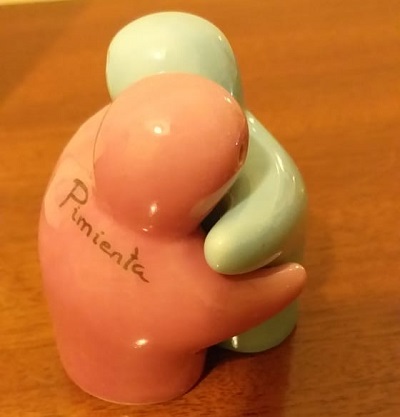This paper considers the marriage problem under dynamic rematching. It is shown that if players who obtain higher payoffs are less likely to experiment with non-best response behavior, then matchings selected in the long run will belong to the set of Rawlsian stable matchings – the set of stable matchings which maximize the payoff of the worst off player. Conversely, alternative behavioral rules will fail to select Rawlsian stable matchings in some environments. This constitutes an evolutionary axiomatization of Rawlsian stable matchings in terms of the behavioral rules that give rise to them.
Coauthored with Ennio Bilancini and Leonardo Boncinelli.
Published in Games and Economic Behavior (2020). Link to paper.
The thumbnail image is of a pepper pot and a salt pot hugging.
